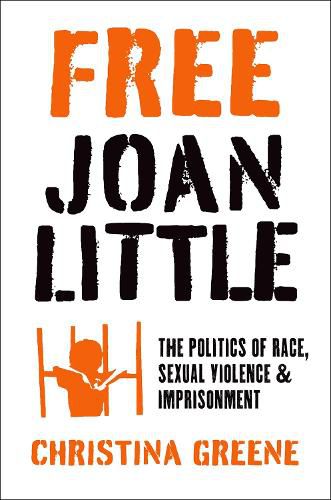Readings Newsletter
Become a Readings Member to make your shopping experience even easier.
Sign in or sign up for free!
You’re not far away from qualifying for FREE standard shipping within Australia
You’ve qualified for FREE standard shipping within Australia
The cart is loading…






Early on a summer morning in 1974, local officials found the jailer Clarence Alligood stabbed to death in a cell in the women’s section of a rural North Carolina jail. Fleeing the scene was Joan Little, twenty years old, poor, Black, and in trouble. After turning herself in, Little faced a possible death sentence in the state’s gas chamber. At a trial, which was followed around the world, Little claimed that she had killed Alligood in self-defense against sexual assault. Local and national figures took up Little’s cause, protesting her innocence. After a five-week trial, Little was acquitted. But the case stirred debate about a woman’s right to use deadly force to resist sexual violence.
Through the prism of Little’s rape-murder trial and the Free Joan Little campaign, Christina Greene explores the intersecting histories of African American women, mass incarceration, sexual violence, and 1970s and 1980s social movements. Greene argues that Little’s circumstances prior to her arrest, assault, and trial were shaped by unprecedented increases in federal financing of local law enforcement and a decades-long criminalization of Blackness. She also reveals tensions among Little’s defenders and recovers Black women’s intersectional politics of the period, which linked women’s prison protest and antirape activism with broader struggles for economic and political justice.
$9.00 standard shipping within Australia
FREE standard shipping within Australia for orders over $100.00
Express & International shipping calculated at checkout
Early on a summer morning in 1974, local officials found the jailer Clarence Alligood stabbed to death in a cell in the women’s section of a rural North Carolina jail. Fleeing the scene was Joan Little, twenty years old, poor, Black, and in trouble. After turning herself in, Little faced a possible death sentence in the state’s gas chamber. At a trial, which was followed around the world, Little claimed that she had killed Alligood in self-defense against sexual assault. Local and national figures took up Little’s cause, protesting her innocence. After a five-week trial, Little was acquitted. But the case stirred debate about a woman’s right to use deadly force to resist sexual violence.
Through the prism of Little’s rape-murder trial and the Free Joan Little campaign, Christina Greene explores the intersecting histories of African American women, mass incarceration, sexual violence, and 1970s and 1980s social movements. Greene argues that Little’s circumstances prior to her arrest, assault, and trial were shaped by unprecedented increases in federal financing of local law enforcement and a decades-long criminalization of Blackness. She also reveals tensions among Little’s defenders and recovers Black women’s intersectional politics of the period, which linked women’s prison protest and antirape activism with broader struggles for economic and political justice.